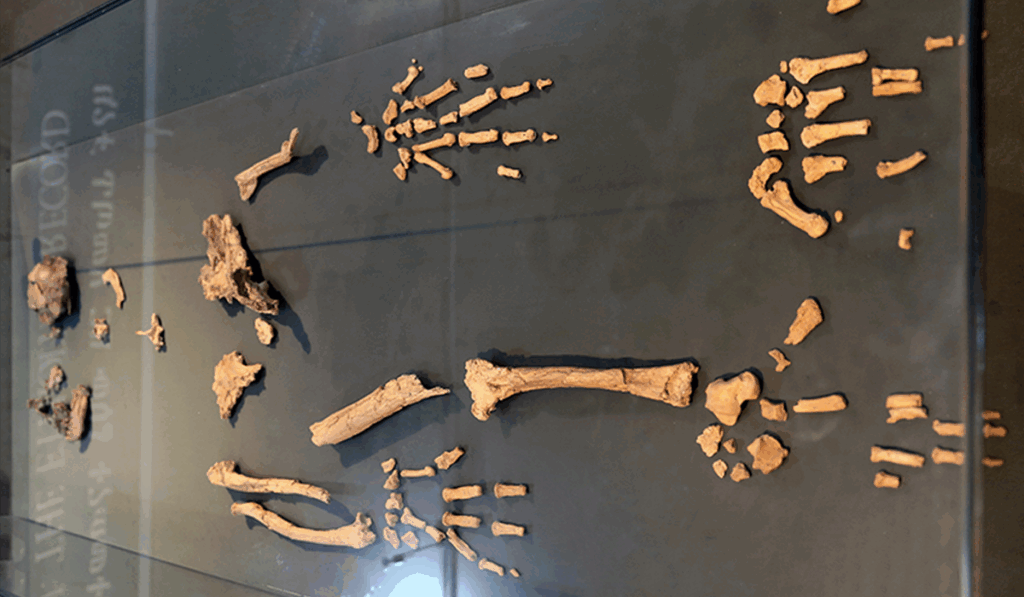For more than a century, scientists have been piecing together the puzzle of human evolution, examining fossil evidence to understand the transition from our earliest ancestors to modern humans.

A new study from Washington University in St. Louis, published October 15 in Communications Biology, presents compelling evidence to support the hypothesis that humans evolved from an African ape-like ancestor. With this discovery, which challenges previous findings, researchers are able to narrow the range of explanations for the origin of human lineage. In doing so, scientists are one step closer to answering one of life’s greatest questions, “where do we come from?”
The research, led by Thomas (Cody) Prang, assistant professor of biological anthropology in Arts & Sciences at WashU, revisits the breakthrough discovery of the 4.4-million-year-old Ardipithecus — nicknamed “Ardi” — which was discovered in 1994.
“One of the surprises in this discovery was that Ardi walked upright, yet retained a lot of ape-like characteristics, including a grasping foot,” Prang said.
“Apes, like chimpanzees and gorillas, have a big toe that’s divergent, which allows them to grip tree branches as part of a climbing lifestyle. Yet it also had features that align with our lineage. That makes Ardipithecus a true transitional species.”
